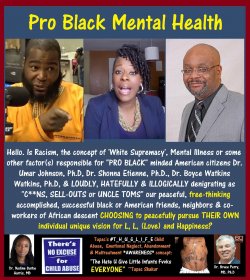- Nov 28, 2011
- 42,865
- 16,030
- 2,250
Coming from a racist black perspective.I think it's sad that there are black people who spend their entire lives trying to convince the world that they should be pitied and propped up because of their insistence that they are substandard.
Racism: Negative Effects on Whites
Racism has distorted reality for many whites. Teachings about history, the world, the pursuits of thought, expressions of culture, and personal relationships have for most whites been both limited and false.



